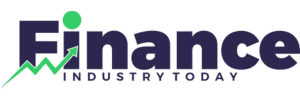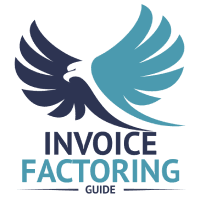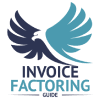A Comprehensive Guide to Invoice Factoring
Are you tired of waiting for customers to pay their invoices while your expenses pile up? Invoice factoring could be the game-changer you need, unlocking a cost-effective, streamlined, and accessible way to raise much-needed working capital without increasing your business’s debt.
Invoice Factoring: A Cash Flow Lifeline for Businesses Across the United States
Imagine you could get an instant stream of cash flow without taking out a loan, and you wouldn’t have to worry about slow-paying clients settling their debts – sounds like a dream, right? That’s precisely what invoice factoring does.
In this guide, we’ll walk you through the ins and outs of invoice factoring, showing you how it can revolutionize your cash flow and help your business flourish.
What You’ll Learn in This Guide
Summary of Key Points
Did you know that insufficient capital is one of the leading reasons that businesses fail? According to statistics, more than 80% of business failures are caused by a lack of cash, 20% of small businesses fail within a year, and half will fail within five years.
With statistics like that, you need to take every precaution to protect your cash flow, and if you’re constantly waiting on payments from your debtors, that is easier said than done.
If you’ve ever felt like you’re trapped in an endless waiting game for your customers to pay their invoices, the right factoring company can be your business’s knight in shining armor. With the debt-free financing that invoice factoring provides, you get access to funding quickly and conveniently. It is affordable, speeds up your cash flow, and you won’t have to wait for those pesky customer payments to come in or jump through the endless hurdles of applying for a loan. Think of it as a cash-flow booster that gives you the valuable financial support your company needs to thrive.
So, what is invoice factoring?
Also known as accounts receivable factoring, invoice factoring is the go-to funding solution for businesses of all sizes that are looking for a fast way to enhance their financial standing. It enables businesses to sell their unpaid customer invoices to a factoring company, which then advances them a percentage of the invoice value. The factoring company collects payment from your clients and then returns the remaining balance to you, minus a small fee. It’s a win-win situation: you receive the cash you need to grow, and the factoring company earns a fee for its services.
By selling your invoices to a factoring company, you get instant access to the money that is tied up in your accounts receivable department, helping to close the cash flow gap created by slow-paying customers. Even if you have extended longer payment terms to your customers, with up to 90% of the invoice’s face value paid to your business upfront, you won’t need to worry about how you will cover payroll, supplies, or other overheads. You will have the cash on hand to run and grow your business without waiting months for your customers to pay you. Plus, since factoring isn’t a loan, it’s debt-free, and it can actually improve your credit instead of damaging it. You just need to make sure you choose the right factoring company to partner with.
The History of Factoring: A Time-Tested Financing Technique
Invoice factoring has a rich history that dates back thousands of years, with evidence of factoring transactions dating back to ancient Mesopotamia (around the 18th Century BC). Hammurabi, the sixth Babylonian King, introduced a set of laws known as the Code of Hammurabi, which encompassed regulations for merchants looking to utilize factoring as a financing method. The practice evolved over time and was even embraced by ancient Roman merchants who employed agents known as “factors” to obtain trade credits.
By the 1300s, invoice factoring started to resemble its modern form. Various historical events in Europe led to different merchant groups adopting factoring. In the 1300s and 1400s, Jews escaping persecution in Spain found refuge in Italy and, unable to own land, engaged in local grain trade. They initiated charging fees for cash usage and eventually provided high-risk loans to farmers backed by their crops. This service evolved to include advancing funds for exported grain delivery and payment. Meanwhile, in England, clothing merchants had also started to employ factoring as a financing tool.
Fast forward to today, and factoring has evolved into a dynamic and complex B2B financial service. Its fundamental concept, however, has remained unchanged: a third party acquires a company’s invoices at a discounted rate, enabling the company to function and generate capital for expansion. The factoring company advances most of the invoice value, collects payment on behalf of the company, and then reimburses the balance once the customer has fully paid, deducting a nominal fee.
The Evolution of Invoice Factoring in the United States
In the United States, the practice of invoice factoring gained prominence during the colonial period, as merchants sought financing for their trade activities. Over time, invoice factoring has evolved and adapted to the changing economic landscape, with modern factoring companies offering a range of services tailored to the unique needs of today’s businesses. As industries have grown and become more specialized, so too have factoring services, with many factoring companies now catering to specific sectors such as transportation, construction, and healthcare.
Some factoring firms also offer supplementary back-office services, such as managing invoicing and collections, and industry-specific advantages. For example, freight factoring companies (factors that specialize in funding the transportation industry) may offer fuel cards, maintenance plans, and load boards to further improve the financial strength of their customers.
A Detailed Look at the Invoice Factoring Process
When your business is in need of a financial boost, but the hurdles of traditional loans are holding you back, invoice factoring can be a game-changer. It’s a great fit for SMEs and startups that traditionally can’t qualify for bank loans because you don’t need extensive collateral or a strong history to qualify. Factoring also offers a faster turnaround time than bank loans (usually 24-48 hours), and it doesn’t negatively impact your credit score. To add to its benefits, the funds from factoring are also unrestricted, so they can grow as your needs do instead of you needing to reapply for a new loan every time you need more cash.
How does invoice factoring work? There are four main components in the invoice factoring process:
In essence, invoice factoring involves transferring ownership of your accounts receivable, either partially or fully, to the factor. Let’s break down the invoice factoring process into five simple steps:
What Industries and Businesses Are Best-Suited for Factoring?
Factoring is notoriously easy to qualify for, which is why it is used by such a wide array of businesses, from budding startups to well-established corporations.
Every day, businesses across various industries enhance their cash flow with invoice factoring, including those in the following sectors:
So, if your business operates in any of these industries and faces recurring payment delays, invoice factoring can be the answer to your cash flow problems.
Is Factoring Only Available to B2B Businesses?
In most cases, yes. Though, with enough digging around, some B2C companies may find a factor that can help them. The critical factors are whether a business issues invoices with net payment terms to its customers and the volume and amount of those invoices.
B2B businesses often have a higher volume of outstanding invoices and longer payment terms, making them the primary target audience for factoring companies. On the other hand, B2C businesses typically collect payments at the point of sale, meaning they usually don’t have outstanding invoices to factor.
That said, there are exceptions. Some B2C businesses that offer services on a contractual basis or have long payment terms for their customers can leverage invoice factoring to bridge their cash flow gaps.
Is Factoring the Right Choice for Your Business?
In most cases, yes. Though, with enough digging around, some B2C companies may find a factor that can help them. The critical factors are whether a business issues invoices with net payment terms to its customers and the volume and amount of those invoices.
B2B businesses often have a higher volume of outstanding invoices and longer payment terms, making them the primary target audience for factoring companies. On the other hand, B2C businesses typically collect payments at the point of sale, meaning they usually don’t have outstanding invoices to factor.
That said, there are exceptions. Some B2C businesses that offer services on a contractual basis or have long payment terms for their customers can leverage invoice factoring to bridge their cash flow gaps.
- 1Are you finding it difficult to secure traditional bank financing due to a low credit score, lack of collateral, or limited business history?
- 2Is your business experiencing rapid growth, making it difficult to keep up with the demands of invoicing and collections?
- 3Would you benefit from having a third party handle your invoicing and collections, allowing you to focus on other aspects of your business?
- 4Are your products and services delivered on time, but you’re dealing with major payment delays from customers?
- 5Are you tired of spending valuable time and resources on chasing down late payments and managing your accounts receivable?
- 6Do you find it tough to manage daily operating expenses while waiting for customer payments?
- 7Would you like to reduce the risk of bad debt and non-payment by customers?
- 8Are you struggling to maintain a healthy cash flow?
- 9Do you find yourself postponing payments to suppliers and other bills because you’re waiting for client payments?
- 10Are you forced to turn down new business opportunities because of cash flow issues?
If you answered “yes” to any of these questions, investigating invoice factoring could be your next best step. With invoice factoring, you get payments immediately instead of waiting for late-paying customers. This financial boost can help you cover your expenses, hire new staff, expand your business, and even start building up an emergency fund or reserve for future needs.
Key Benefits of Invoice Factoring and Why It’s Popular Among Small Businesses
Invoice factoring offers several advantages that make it an attractive financing option, especially for small businesses.
Enhanced Cash Flow
Lowered Debt and Better Credit Standing
Time Savings and Flexible Financing
Why Small Businesses Prefer Factoring
Invoice Factoring vs. Bank Loans: A Comparison
While invoice factoring lets you get an advance on your unpaid invoices, it’s not the same as borrowing money from a bank. Choosing between invoice factoring and bank loans can be a tough decision for business owners who don’t fully understand how the options stack up against each other. Both options have their advantages and disadvantages, and the choice depends on your specific business needs. Here are some factors to consider when weighing invoice factoring against bank loans:
Bank Loans:
Invoice Factoring:
Invoice factoring is often the preferred option over a bank loan in the following situations:
Invoice Factoring vs. Invoice Discounting
While we are on the subject of comparing invoice factoring to a loan, let’s clarify a point that often gets lost in translation: Invoice factoring and invoice discounting are not the same things.
Invoice discounting, sometimes called invoice financing, is a term often used interchangeably with factoring, but it is actually a completely different funding solution.
With invoice factoring, you are selling your invoices to a factoring company and thereby transferring ownership of your accounts receivables. You get the advance on the invoice’s face value, and your customers make their payments directly to the factoring company (instead of your business). This means that, unless your customers default, there is nothing for you to repay to the factoring company; they will just deduct their fee from your factoring reserve before they refund it to you.
Invoice financing, on the other hand, is more like a loan. In this case, you still get the advance on the invoice value, but you maintain control over collections, and your customers continue to make their payments directly to your business. Once your customers have paid you, you will need to repay the advance to the financing company. This financing option allows you to maintain a direct relationship with your customers while still benefiting from improved cash flow. However, it’s important to remember that, unlike invoice factoring, invoice discounting requires businesses to make repayments, similar to a traditional loan. Depending on your specific financing agreement, this option can still come with additional fees and interest.
Dispelling Common Factoring Misconceptions
While factoring has been around for centuries, it has only recently gained popularity among small businesses. Despite the increasing number of industries and businesses using this service, some misunderstandings still linger. Let’s debunk these myths and set the record straight.
Myth 1: Factoring is a Last Resort for Struggling Businesses
Many people believe that only businesses facing financial difficulties use factoring. However, a large number of thriving businesses also use factoring to enhance their cash flow. It allows them to access immediate payments for work they’ve completed instead of waiting months for their debtors to settle their invoices. Companies of all sizes can benefit from faster invoice payments, so contrary to popular belief, factoring is not exclusively for businesses on the brink of financial ruin.
Myth 2: Factoring Companies Function as Lenders
Factoring companies differ from traditional lenders like banks, merchant cash advance (MCA) providers, or payroll financing companies. They don’t lend money that you need to repay. Instead, you sell your invoices to the factoring company, so there’s no debt to worry about. Factoring companies recoup their investment when your clients pay them directly.
Myth 3: Factoring Companies Operate Like Collections Agencies
It’s a common misconception that factoring companies are collections agencies. While factoring companies can certainly assist with collections, they offer a wide range of other valuable services as well, such as invoice preparation, payroll management, and fuel cards with discounts. Unlike collections agencies, factoring companies focus on obtaining payments from creditworthy clients rather than chasing delinquent accounts. It’s important to note, however, that factoring companies may not be able to assist with extremely delinquent accounts, as invoices more than 90 days overdue are unlikely to be approved for factoring. Overall, factoring companies offer a suite of valuable services beyond just collections.
Myth 4: Factoring Services Can Harm Customer Relationships
Factoring companies aren’t as aggressive as collections agencies and, therefore, won’t jeopardize your customer relationships with harsh collection tactics. Their professional teams approach collections with courtesy and respect. In fact, with a steadier cash flow, you can offer your customers more flexible payment terms, which may even strengthen your relationships.
Myth 5: Factoring Means Losing Control of Your Business
Some business owners worry that factoring means losing control over their business’s financial affairs. However, this is not the case. Factoring companies simply provide an advance on outstanding invoices, giving you the funds you need to manage and grow your business. By taking over tasks such as invoicing and collections, factoring companies free up your time and resources, allowing you to focus on your core business operations.
Moreover, factoring agreements will clearly outline the advance rate, fees, and other important terms, ensuring transparency and helping you maintain control over your business’s financial management. You can choose which invoices to factor, and you’ll still be responsible for setting credit terms and managing customer relationships.
Understanding What’s in Your Factoring Agreement
When considering invoice factoring, it’s important to understand the terms and conditions of the arrangement. This is outlined in the factoring agreement – a legally binding contract between your business and the factoring company. This agreement covers important details such as the volume of invoices to be factored, the advance rate, factoring fees, payment terms, and more.
It’s crucial to carefully read and fully understand the agreement before signing to avoid confusion and ensure that you are aware of what is expected from both parties. Additionally, thoroughly reviewing the agreement can help you to spot any hidden fees or unexpected requirements.
The factoring agreement also specifies any requirements that your business must adhere to, such as accurate record-keeping, reporting, and confidentiality provisions. By understanding the details of your factoring agreement, you can navigate the factoring process with confidence and ensure a successful partnership with your chosen factoring company.
Common Terms and Fees in a Factoring Agreement
Hidden Fees: What to Watch Out For
How Much Does Invoice Factoring Cost?
The cost of factoring is probably your number one concern, and factoring fees can be a bit of a puzzle, but we’re here to help you crack the code.
If you’re trying to work out how much factoring will cost your business, you will need to consider these three main points:
Flat Rate vs. Tiered Rates
Most factoring companies use a tiered rate structure, which ties the financing cost to the period that the invoices remain unpaid.
With a tiered rate structure, the longer your clients’ invoices remain unpaid, the higher your factoring cost will be. This is because the factoring company assumes a higher risk the longer it takes for your customers to pay their invoices. Tiered rates can be more cost-effective if your clients are known to pay their invoices on time, but they can become more expensive if your clients take longer to pay.
On the other hand, a flat rate structure means that the factoring rates are represented as a fixed fee, regardless of how long it takes for your customers to pay their invoices. This can be advantageous for businesses with predictable payment schedules because it gives you a more straightforward and consistent cost to work with, helping you better manage your financial planning.
A flat rate structure is usually the preferred method for businesses, but you may need to do some research to find a factoring company willing to offer this rate structure.
Risk Evaluation: How Factoring Companies Weigh Their Options
Determining risk is a crucial part of a factoring company’s decision-making process. It involves assessing various factors to evaluate how likely they are to receive payments from your customers. Although every factor has a different approach, with some being more receptive to specific factors than others, here are some of the key factors they typically consider:
Breaking Down the Types of Invoice Factoring
Every business operates differently, so factoring has evolved from a one-size fits all solution into a more customizable financing method in order to accommodate the varying needs of all the different industries and business types that use it.
Business owners today can choose from different types of factoring agreements to accommodate for:
Let’s delve into the different types of factoring to help you make the best decision for your business.
What is Whole Ledger Factoring?
Whole ledger factoring involves entrusting your entire accounts receivable portfolio to a factoring company. This option is ideal for businesses seeking a steady cash flow and professional management of their accounts receivable on an ongoing basis. As a comprehensive solution, it allows businesses to focus on growth without being burdened by the constant demands of receivables management.
While whole ledger factoring covers your entire accounts receivable, spot factoring is a more on-demand alternative for businesses that would prefer a more selective approach to invoice financing.
What is Spot Factoring?
Spot factoring, also known as single invoice factoring, provides your business with the flexibility to choose specific invoices or clients to factor. This option allows you to maintain control over your accounts receivable management and access cash flow on an as-needed basis. It’s perfect for businesses that require occasional financial assistance but don’t want to commit to a full-fledged factoring partnership.
As we explore different factoring options, it’s essential to understand the communication dynamics involved in notification and non-notification factoring.
What is Notification Factoring?
Notification factoring involves openly informing your customers about the factoring company’s role in managing and collecting your accounts receivable. This transparent communication fosters trust and allows your customers to develop a direct relationship with the factoring company, knowing their payments are being handled professionally. In this arrangement, a Notice of Assignment (NOA) is sent to customers, indicating the change in payment structure and process.
In contrast, non-notification factoring emphasizes maintaining confidentiality in the factoring process.
What is Non-Notification Factoring?
Non-notification factoring, also known as confidential invoice factoring, keeps your customers in the dark about the factoring company’s involvement. The factoring company communicates with your customers as if they were an extension of your business, preserving the appearance of financial stability and ensuring a smooth customer experience.
To complete our outline of the different types of invoice factoring, let’s evaluate the risk and reward balance outlined in recourse and non-recourse factoring contracts.
Who Assumes the Credit Risk With Invoice Factoring?
The risk that comes with your factoring agreement can be classified into two categories based on who will accept liability for customer non-payment – recourse and non-recourse factoring contracts.
What is Recourse Factoring?
In a recourse factoring agreement, the more common option, your business assumes responsibility for any unpaid invoices. While the factoring company must make every effort to collect payment from your customer, if unsuccessful, the factoring company can “recourse” the invoice. This means that they can request that you buy it back or replace it with another invoice of equal value. You will then need to attempt to collect payment yourself, and if your collection efforts fail, you must absorb the loss. Since you’re taking on most of the risk in recourse factoring, the fees are generally lower than in non-recourse factoring, and there will be fewer (or less strict) approval requirements.
What is Non-recourse Factoring?
Non-recourse factoring, a less common option, transfers the risk of non-payment to the factoring company. So, if customers default on their payments, the factoring company absorbs the loss without seeking reimbursement from you. Due to the increased risk for the factoring company, non-recourse factoring typically has higher fees than recourse factoring. However, it can provide peace of mind, knowing that even if a client fails to pay, your business won’t be responsible for covering the loss.
However, non-recourse factoring does not shield your business from all risks and often includes strict conditions, such as credit limits, concentration restrictions, and other criteria. In most cases, the factoring company will assume the risk only under specific circumstances, like when a debtor declares bankruptcy. If your debtors have poor credit histories, their invoices may not qualify for non-recourse factoring.
What is Modified Recourse Factoring?
Modified recourse factoring is a hybrid of recourse and non-recourse factoring, combining the advantages of both options. With modified recourse factoring, the factoring company has credit or receivables insurance in place to protect your business if your debtors fail to pay invoices due to bankruptcy. However, the factoring company usually only accepts the risk up to a specific limit, which varies depending on the company you choose. For instance, if your customer files for bankruptcy within a specified period, such as 60 days after the invoice due date, the factoring company assumes the risk. But if the bankruptcy filing occurs outside of the defined timeframe, you are responsible for repaying the advance to the factoring company.
In addition, the terms of modified recourse factoring may differ from one factoring company to another. If your customer refuses to pay due to reasons other than bankruptcy, such as disputes over quality or service issues, you may be held liable for the invoice, or the factoring company may offer the option to exchange the invoice for another one of equal value. It’s crucial to select a factoring partner who can provide you with a modified recourse factoring arrangement that meets your specific business needs and provides the necessary level of protection.
How to Tell if Your Business Needs Factoring
When is Invoice Factoring a Good Fit?
How can you tell if invoice factoring is the solution your business needs? Here are some situations where factoring can be a game-changer:
Choosing the Ideal Factoring Company: 6 Must-Consider Points
Picking the right factoring company is crucial for managing cash flow, increasing working capital, and easing accounts receivable stress. Here are six essential points to consider when choosing a factoring company:
Ready to Commit? 9 Crucial Questions to Ask a Factoring Company Before You Sign Up
Finding the perfect factoring partner can feel like searching for a needle in a haystack. There are hundreds, if not thousands, of factoring companies to choose from in the United States. With different services, fees, and contract lengths being offered by each, it’s essential to ask the right questions. So, before shaking hands and putting your signature on the dotted line of your factoring agreement, remember these 9 must-ask questions to separate the wheat from the chaff:
Invoice Factoring: Alternative Funding That Grows With Your Business
Imagine your business as a plant that needs room to grow. Just as plants need the right pot size and nutrients, small and medium-sized businesses require flexible financing options that can expand alongside them. Picking a reliable factoring company is like choosing the perfect pot and soil for your growing plant, providing it with the support and nourishment it needs to flourish.
Traditional loans might feel limiting, like a small pot that restricts the plant’s growth. In contrast, factoring is known for being a versatile funding choice, acting as a more spacious container that adapts to your business’s expanding roots. As your client base grows and your financial needs increase, factoring provides the flexibility necessary for your business to thrive without being hindered by rigid loan terms.
Funding for Dynamic Businesses
When your business is on the rise, you need financial solutions that can keep up. Factoring is designed to be an adaptable funding option that matches your growth. By partnering with a trustworthy factoring company, you’ll have access to financial resources that are responsive to your ever-changing requirements, setting you apart from the constraints of fixed-limit traditional loans.
Quick Cash for Crucial Investments
Picture your business as a car that needs fuel to keep running smoothly. A steady cash flow is essential for making vital purchases like equipment, vehicles, or other capital investments. Factoring acts as the fuel station, keeping your cash flow healthy by releasing funds stuck in aging accounts receivable. This is particularly crucial for smaller businesses that need to make important investments without delay.
Dealing With Stretched Payment Terms
We’ve all faced those tricky customers who push payment deadlines to 60, 75, or even 90 days. It’s like having a flat tire and not knowing when the repair truck will arrive. For companies with fixed expenses, factoring comes to the rescue by turning money tied up in your AR processes into quick cash. Now you can take on new business without fretting over customers’ payment terms.
Embracing Factoring for Business Growth
If you’re considering invoice factoring as a way to support your growing business, take the next step by requesting a free rate quote from Invoice Factoring Guide. We’ll connect you with experienced, reputable factoring companies specializing in your industry. They’ll address all of your questions and help you choose the best financing option for your unique needs. Don’t wait – unlock your business’s full potential with invoice factoring today!
Why Healthcare Companies Choose Invoice Factoring
“I had a great experience from the onboarding to the factoring.”
“Our transition has been very smooth and easy.”
“They give me the fast cash I need and the team there is great. My rep always takes the time to help me out.”
“I was completely impressed with their professionalism and customer service.”
“Awesomeness personified. This company saved our business. Instead of having to wait around 2 months for our payments we get them within days.”
“The people there really care about you and I’m very happy with the service I’ve gotten.”
Get an instant funding estimate
Results are estimates based on the calculated rate and the total invoice amount provided.
Actual rates may vary.
Request a Factoring Rate Quote
PREFER TO TALK? Call us at 1-844-887-0300
A Network Featured by the Media






Partners Affiliated with Industry Leaders





